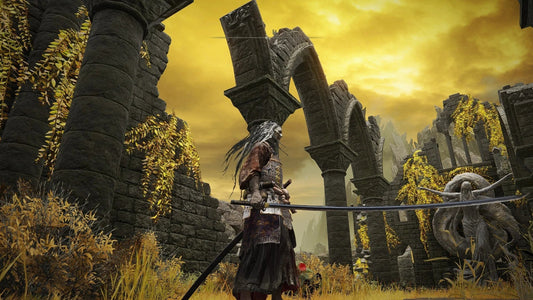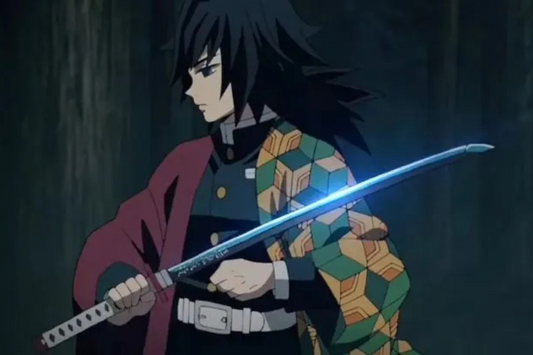
Servants and Masters: Exploring the Bond That Powers Fate/stay night’s Heroes
The Fate/stay night series, created by Type-Moon, revolves around a unique and powerful bond between “Masters” and “Servants,” pairs who must work together to achieve victory in the Holy Grail War. Masters are mages who summon legendary heroes—Servants—from various eras, partnering with them in a battle for the ultimate prize: the Holy Grail, an artifact capable of granting any wish. This bond between Master and Servant, however, is more than just a simple contract; it is a dynamic, evolving relationship that shapes both the heroes and their journeys. From the clash of personalities and the sharing of dreams to the mutual trust they must build, the bond between Masters and Servants is the heart of the Fate/stay night story.
The Foundation of the Bond: Command Seals and Summoning
Each Master in Fate/stay night is granted three Command Seals, magical symbols that represent their control over their Servant. These Seals allow Masters to enforce three absolute commands, binding their Servants to obey regardless of their own will. However, the Command Seals are also a double-edged sword; while they give the Master ultimate authority, they highlight the delicate balance of power and trust needed in the Master-Servant relationship. Masters who rely too heavily on Command Seals risk alienating their Servants, while those who use them sparingly can foster a bond built on mutual respect and loyalty.
When a Master first summons a Servant, the two may not fully understand each other, yet their fates are intertwined by the summoning ritual and the Command Seals. These seals provide a sense of power but also create an inherent vulnerability, as both Master and Servant depend on each other’s strength to survive the battles ahead. As they navigate the Holy Grail War, the evolving connection between them can either strengthen their resolve or lead to devastating consequences.
Servant Archetypes: Legendary Heroes with Modern Masters
Servants in Fate/stay night are categorized into specific classes—Saber, Archer, Lancer, Rider, Berserker, Assassin, and Caster—each with unique strengths and skills. They are summoned from different historical and mythical backgrounds, with Servants like Saber (Artoria Pendragon), Archer (EMIYA), and Lancer (Cu Chulainn) carrying rich legacies and deeply personal motivations. These heroes come with a wealth of experiences and established identities, yet their bond with their Master often shapes them in surprising ways, challenging their beliefs or reigniting old dreams.
For Masters, the arrival of a Servant is more than the appearance of a powerful ally; it is the beginning of a complex partnership. Masters must learn to understand their Servants’ personalities, motives, and values. Some Servants, like Saber, are deeply bound by honor and duty, while others, like Archer, have a more cynical worldview. These clashing perspectives force Masters to confront their own values and ambitions, reshaping their approach to the Holy Grail War and their partnership with their Servant.
Shirou and Saber: An Idealist and a Knight
The relationship between Shirou Emiya, an idealistic young mage, and Saber, the embodiment of chivalry and honor, is one of the most compelling dynamics in Fate/stay night. Shirou is deeply influenced by his adoptive father’s ideals of heroism, leading him to value self-sacrifice and the protection of others. Saber, on the other hand, is a stoic knight who carries the heavy burden of her past as King Arthur, seeking redemption for her perceived failures as a ruler.
At first, Shirou and Saber’s ideals seem to align, but their bond is complicated by their contrasting philosophies about self-sacrifice and duty. Shirou’s recklessness in battle, driven by his desire to save others at any cost, challenges Saber’s disciplined, duty-driven approach. Over time, Saber comes to respect Shirou’s genuine desire to help others, while Shirou learns to see Saber as more than just an idealized figure of strength. Their bond becomes a mutual exchange of ideals, ultimately leading each to reconsider their approach to heroism, duty, and redemption.
Rin and Archer: A Bond of Conflict and Growth
Rin Tohsaka, a skilled and confident mage, and her Servant, Archer, have one of the most complex and turbulent relationships in the series. Archer, whose true identity is a future version of Shirou Emiya, carries a disillusioned, jaded perspective on heroism after years of fighting as a “counter guardian.” Rin, a practical and ambitious mage, initially sees Archer as a powerful ally and an asset in her quest for the Grail.
However, as their relationship develops, Archer’s cynicism clashes with Rin’s unwavering belief in pursuing her dreams. Archer is critical of Rin’s idealism, yet he finds himself drawn to her determination and strength. Conversely, Rin is both frustrated and intrigued by Archer’s skepticism, sensing there is more to him than meets the eye. The bond between Rin and Archer becomes a journey of self-reflection, forcing both characters to confront their ambitions and the consequences of their ideals. In the end, Rin and Archer develop a mutual respect that transcends their conflicting philosophies, highlighting how the Master-Servant bond can push both parties toward growth and understanding.
Sakura and Rider: Loyalty and Mutual Healing
Sakura Matou and her Servant, Rider, share a quieter but deeply meaningful bond rooted in empathy and loyalty. Sakura, a victim of abuse and trauma within her family, summons Rider, a fiercely protective and loyal Servant. Unlike the traditional power dynamic where Masters wield control, Rider assumes a more protective role over Sakura, sensing her vulnerability and supporting her beyond mere obligation.
Rider’s loyalty goes beyond her duty as a Servant; she views Sakura as someone worth protecting and encourages her to confront her fears and insecurities. In turn, Sakura begins to find her inner strength through Rider’s support, developing confidence and a sense of self-worth. Their bond reflects the healing that can arise from genuine loyalty and care, showing that the Master-Servant relationship can foster not just power but also personal growth and resilience.
The Holy Grail War: A Test of Trust and Unity
The Master-Servant bond is put to the ultimate test in the brutal and unforgiving environment of the Holy Grail War. As Masters and Servants face increasingly dangerous opponents and high-stakes decisions, they must rely on each other’s abilities and support to survive. The war forces both Masters and Servants to confront their ideals, their pasts, and their commitment to one another. Trust becomes a defining element; a weak bond can lead to mistrust and betrayal, while a strong bond can elevate both Master and Servant, giving them a fighting chance in the chaotic battle for the Grail.
Some pairs, like Shirou and Saber, thrive under pressure, solidifying their commitment to each other’s cause. Others, like Rin and Archer, face internal conflict that complicates their relationship yet ultimately fosters deeper understanding. The Holy Grail War reveals the strength and limitations of each bond, illustrating that true unity between Master and Servant is essential to achieving victory and, in some cases, redemption.
Beyond Power: The Meaning of Connection in Fate/stay night
In Fate/stay night, the Master-Servant relationship is more than a simple partnership for survival. It is an emotional and philosophical journey that challenges characters to confront their beliefs, values, and aspirations. Through their interactions with their Servants, Masters are forced to reevaluate their understanding of strength, heroism, and sacrifice. Likewise, Servants, who come with established histories and legends, are given a chance to reconsider their own legacies and desires in the presence of their Masters.
Each Master-Servant pair offers a unique perspective on what it means to strive for greatness, face inner demons, and find purpose. From Shirou and Saber’s shared struggle with the idea of heroism to Sakura and Rider’s journey of healing, these bonds underscore the power of empathy, understanding, and trust in overcoming obstacles and achieving personal growth.
Conclusion
The Master-Servant bond is the emotional and thematic core of Fate/stay night, a series that explores the depths of human connection in the face of conflict. Through these unique partnerships, the story illustrates that power alone is not enough to achieve one’s goals; true strength comes from understanding, trust, and shared purpose. In the Holy Grail War, Masters and Servants fight for different reasons, yet it is their willingness to support one another, confront their own beliefs, and grow together that ultimately shapes their paths.
In a world where legendary heroes and modern mages collide, Fate/stay night shows that the bonds forged in battle can transcend time, legends, and ideals, leaving each character changed and enriched by the power of connection.




